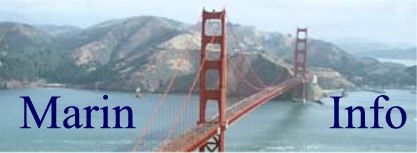|
The hottest ticket in town is an unexpected draw. Seats for workshops on a plan for Bay Area development and transportation to reduce greenhouse gases have all been snapped up, and there are long waiting lists for those anxious to take part in the action. "Sometimes we were lucky to get five or six people to come to meetings for our past regional transportation plans," said Randy Rentschler, a spokesman for the Metropolitan Transportation Commission, a partner in the plan. "Now we're doing the best we can to accommodate the crowds." After tea party and environmental groups with polar opposite views rallied their members and allies to sign up to speak out, the 900 reservation spots for the nine meetings in January are taken. And all the meetings, one per county, have waiting lists -- more than 400 people are on standby, officials reported. The new regional plan is different from past ones because new California laws require a joint transportation and land-use plan to promote compact, sustainable growth near transit centers to reduce driving and emissions. Tea party activists say they urged members to attend to criticize the land use plan as excessive government restrictions on personal choice for housing and driving. Greenbelt Alliance leaders said they pushed to turn out allies because they didn't want the workshops to be unduly swayed by tea party activists who want to kill the plan. "This plan is about making the Bay Area a better place. We should focus on improving it rather than disrupting the process," said Stephanie Reyes, the Greenbelt Alliance's policy director. Tea party members and their allies signed up electronically under different names and emails because they fear the transportation commission will exclude plan critics, said Heather Gass, a tea party leader from Alamo. Transportation commission representatives flatly deny the agency excludes anyone for their political views. The waiting lists may be artificially high because of people signing up under multiple names, Rentschler suggested. In any case, about 120 people -- 20 above the limit -- squeezed into the first meeting in San Francisco on Thursday. Gass, a real estate saleswoman, said she doesn't trust the commission and says the agency can screen out dissenters because the online sign-up form asks registrants to state whether they are advocates who "favor less government," or represent environmental, social justice or business interests. "I signed up under three names and I have yet to hear from them," said Gass. "They are cherry-picking who attends." Gass said requiring advance registration and limiting attendance to 100 people unfairly limits participation. Rentschler said the commission isn't blackballing any registrants, but it hasn't sent confirmation notices to everyone who got a seat. Keeping the workshops limited to 100 people provides time for participants to talk in small groups about priorities, he said. "We want to spend all two hours of the meetings listening to people," he said, "not running out of time because hundreds of people in a large auditorium wanted their minute or two to speak." Asking registrants to state the interests they represent is not to target individuals, but to get a group profile of the entire audience, he said. The nine workshops this year are not the end of public feedback. MTC will do a second public opinion survey of Bay Area residents later this year.
|
|
|
 |
 |
•
• •